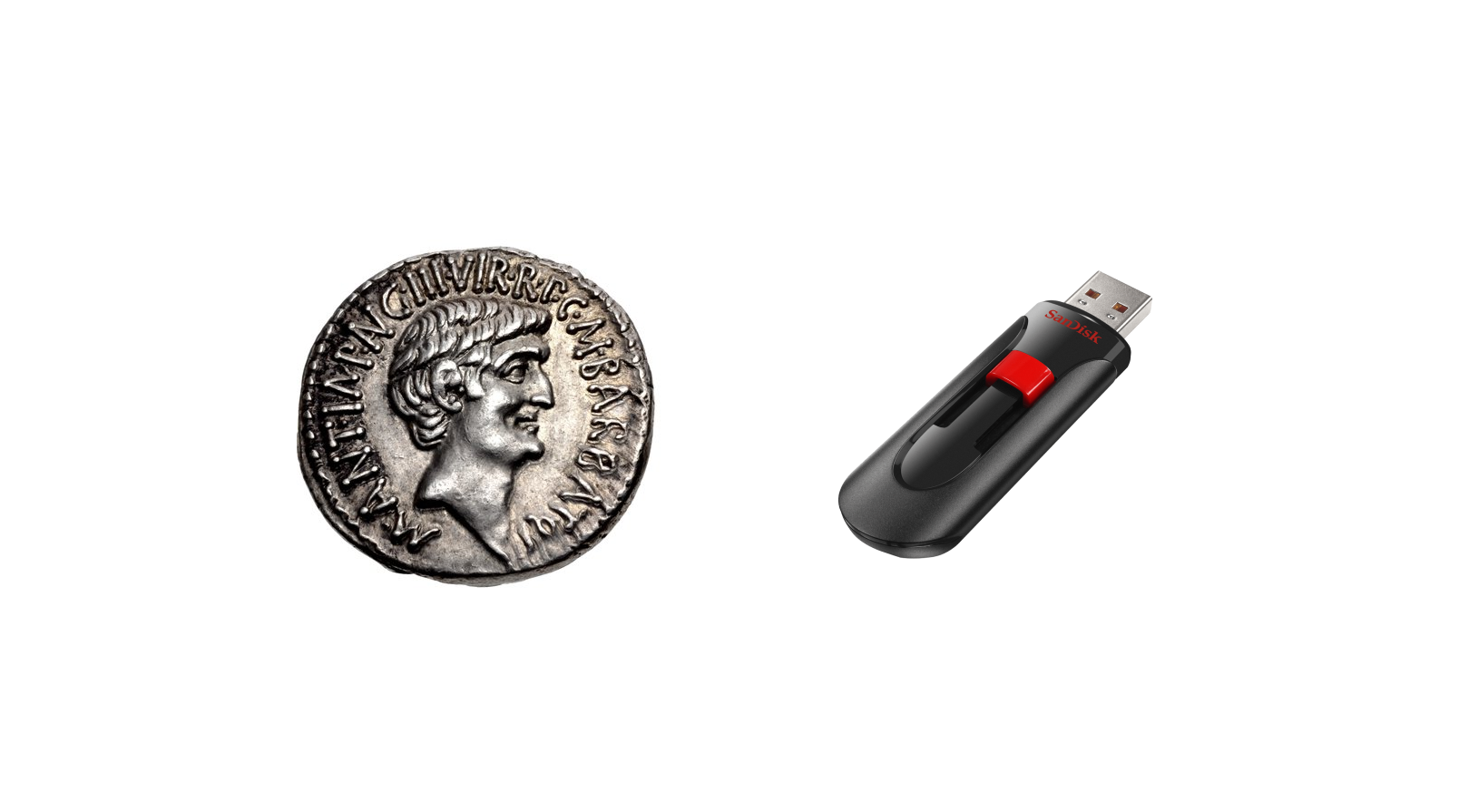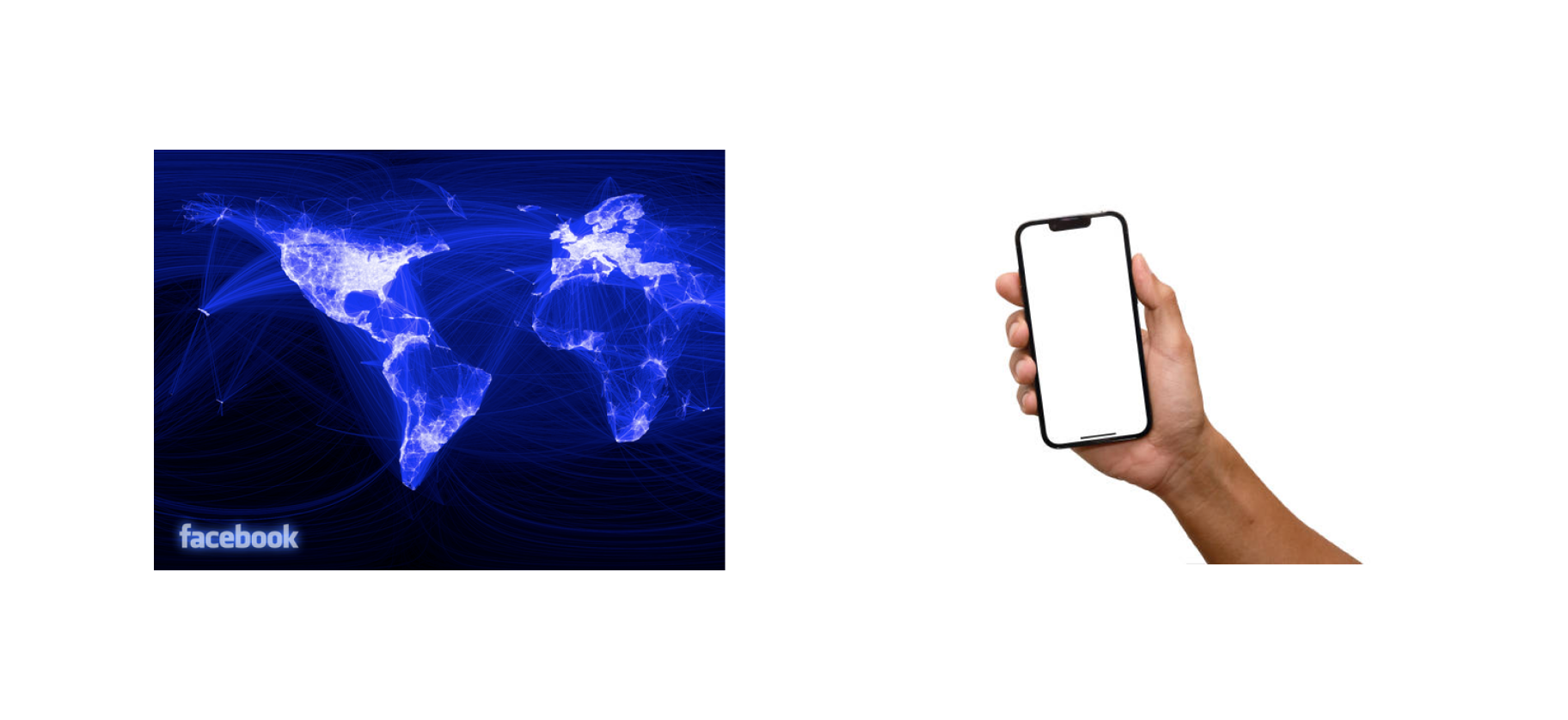Self-Custodied Attention
January 15, 2025
Bitcoin is scarce in the same way that value is scarce. At any point in time, there's a fixed amount of asset-denominated value distributed across the global population of people and assets. The core offering of blockchains is that they're the only way to store this value such that it can't be diluted or seized by nation states.
This ability to harden the storage & expression of value—to maximally place it at the discretion of those who hold it—will empower blockchains to eat up all the value in the world.

Similarly, at any point in time, the amount of human consciousness in the world is fixed. Every day, there's some amount of reality experienced by all humans on Earth, colloquially called "attention".
The internet, alongside centuries of marketing & advertising, has shown us that attention is a precursor to economic value. To buy a shirt, a software package, or a token, it has to enter the mind. A media property—like Star Wars or Nike—that commands attention can convert that attention into value by attaching itself to margin-accretive commodities: shoes, toys, spin-offs, etc.
Social media products like Facebook took this a leap further. Instead of channeling attention into fixed, opinionated brands—they converted all of our loose, fleeting moments of attention into commodities, able to be priced & purchased on markets. Attention that previously might have been haphazardly directed at a newspaper or a photo album was organized into increasingly informative, legible, and verifiable assets. They didn't need you to buy anything; they took your power to buy and commodified it, so that it could be sold to someone else.
Today, platforms capture the vast majority of attention's economic value, because they solved the puzzle of converting it into a useful commodity.
But, in the same way that users no longer need governments to commodify their money, what if users no longer needed platforms to commodify their attention? What if they could self-custody it with provable scarcity and express it on public blockchains?
Like self-custodied money, self-custodied attention would bring:
- Transparency: when attention flows are public, governments & platforms can't convince you that something is popular when it is not
- Economic leverage: you can sell out and grant your attention to the highest bidder, or you can invest it into economic opportunities
- Censorship resistance: no platform can stop you from putting your attention exactly where you want
- Provenance: you can cryptographically verify the historical attention flows related to any onchain entity
Self-custodied attention puts users in control of the social and economic consequences of their headspace. What's required to do it?

platform-embedded attention & self-custodied attention
Blockchains already give us the ability to capture several of the core properties of attention. Since 2015, it's been possible to write a smart contract that lets users express a recurring amount of some ephemeral, unstoppable credit.
However, this is not self-custodied attention.
Just like pre-Bitcoin digital currencies, self-custodied attention faces a double-spend problem. In order to commodify my own attention, I have to be able to prove that I haven't already spent it somewhere else.
When users can generate millions of identical wallets instantly & for free, onchain attention is pointless, because it can easily be double spent.
But, with the advent of proof of personhood, we can give onchain attention the exact same scarcity profile as reality by only attaching it to unique human identities. This lets anyone in the world express a scarce commodity that maps directly onto their supply of consciousness. Hence, it becomes self-custodied attention.
The first step toward users benefiting from self-custodied attention is to create economic consequences as a result of its expression. There are two ways I see this happening:
- Attention Contracts: smart contracts in which users exchange tokens based on the self-custodied attention flows of other users
- Attention Distributions: marketplaces where users earn a particular token by expressing their attention on it
At the end of 2024, I deployed smart contracts & an accompanying product experience to actualize these ideas on World Chain. Sor far, over 350k peer-to-peer Attention Contracts have been settled based on the self-custodied attention flows of more than 140k orb-verified humans.
The first major value proposition of blockchains was to store value. The second will be to store attention, as this allows its originators—people—to maximally control it.
For discussion, message me at n@nano210.blog.